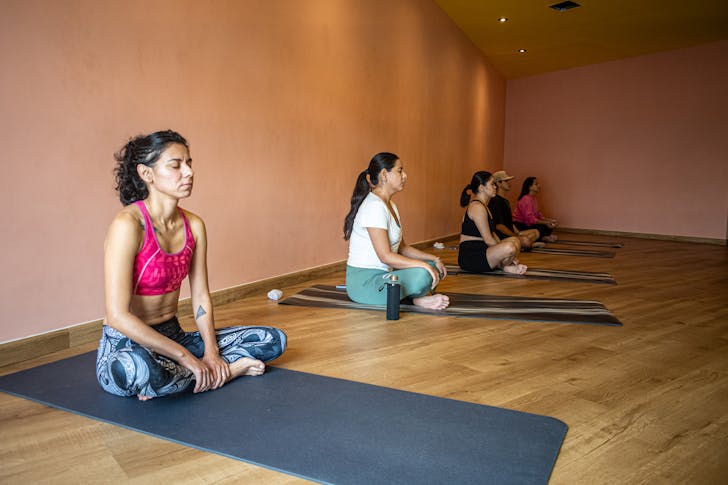How Mindfulness Retreats Can Help You Escape and Find Inner Peace
In today’s world, where social media and constant notifications dominate, mindfulness retreats offer a much-needed escape. Emphasizing present-moment awareness, these retreats allow individuals to disconnect from daily stress and immerse themselves in quiet reflection. From meditation sessions to serene natural settings, mindfulness retreats allow participants to cultivate calmness and restore mental clarity.
What Are Mindfulness Retreats?
Mindfulness retreats are structured programs that help individuals focus on relaxation, awareness, and personal growth. They vary widely in their approach, with some incorporating meditation, yoga, and breathwork, while others include wellness workshops or quiet contemplation in nature. Regardless of the format, the core idea is to develop mindfulness practices that help ease stress and enhance mental resilience.
Typically, mindfulness retreats are set in tranquil, natural locations like mountains, forests, or near the ocean. This serene environment allows participants to step away from their routine and engage fully with the present moment. Silence often plays a significant role in these retreats, creating a peaceful atmosphere that fosters self-reflection and encourages a deeper connection with oneself.

Mel Audelo | Pexels | Mindfulness retreats help individuals focus on relaxation, awareness, and personal growth.
How Mindfulness Retreats Foster Personal Growth
During a mindfulness retreat, attendees engage in various practices designed to promote self-awareness and inner peace. Guided meditation sessions are common, encouraging participants to focus on their breath and quiet their minds. This process helps cultivate a sense of calm and reduces anxiety. Yoga sessions and nature walks are also included, adding physical wellness to the experience and fostering a balanced state of mind.
The structure of these retreats typically includes periods of silence, which can feel challenging yet rewarding. In silence, participants confront their thoughts without distractions, gaining insights into their mental patterns. Many report feeling renewed clarity and purpose after completing a retreat. This newfound awareness helps some make positive changes in their personal and professional lives.
Why Disconnecting Is Essential for Mindfulness
A significant aspect of mindfulness retreats is the opportunity to disconnect from technology. Social media and smartphones, while beneficial, can also contribute to stress and prevent genuine connection with the present moment. Research suggests that excessive screen time can fuel anxiety and negatively impact mental health. Retreats offer a break from these digital distractions, allowing individuals to fully immerse themselves in their surroundings and engage meaningfully with others.
This disconnection period allows for a “digital detox,” where participants can experience life without the pressures of constant notifications or social comparison. By stepping away from screens, individuals often find themselves more receptive to the retreat’s teachings, enabling a deeper sense of relaxation and focus. The impact of this break extends beyond the retreat, as many feel empowered to maintain healthier boundaries with technology in their daily lives.
Benefits of Meditation and Mindfulness Practices
Meditation is central to mindfulness retreats, and the benefits are profound. Scientific studies have shown that regular meditation practice helps reduce stress, enhance emotional health, and improve focus. Meditation allows individuals to observe their thoughts without judgment, fostering a more balanced perspective. This practice also supports the brain’s ability to regulate emotions, leading to a greater sense of stability and resilience in the face of stress.

Oluremi Adebayo | Pexels | Meditation helps reduce stress, enhance emotional health, and improve focus.
In addition to emotional benefits, meditation has physical advantages. Studies from institutions suggest meditation can lower blood pressure, improve sleep quality, and boost overall well-being. By integrating meditation into daily routines, participants often carry the retreat’s benefits long after they leave, maintaining a calm and grounded mindset in their everyday lives.
Finding Serenity in Nature
Nature plays a significant role in mindfulness retreats, providing a backdrop that enhances the overall experience. Immersing oneself in natural beauty can evoke a sense of awe and gratitude, which contributes to a peaceful state of mind. Many retreats are held in secluded areas, allowing participants to engage with nature through walking meditations or simply sitting quietly among trees or by the water.
The quietness of nature supports mindfulness goals by providing a space free from urban noise and stimulation. Research shows that spending time in natural settings can reduce stress hormones and boost positive emotions. Walking meditation, a common practice during these retreats, allows participants to mindfully observe their surroundings, strengthening their connection to nature and their own sense of inner peace.